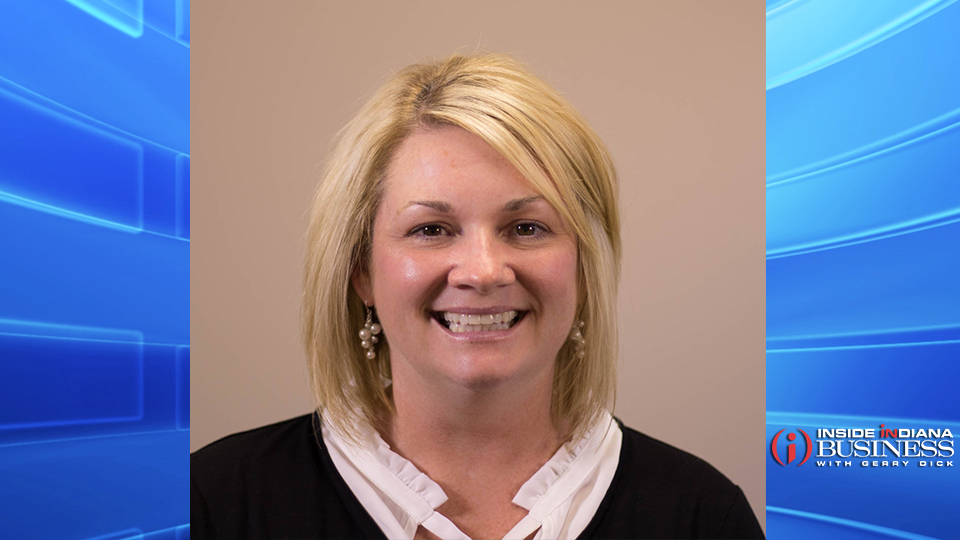A Call for ‘Rapid Response’ to Support Indiana Hospitals
Subscriber Benefit
As a subscriber you can listen to articles at work, in the car, or while you work out. Subscribe Now
Our healthcare workers and system are in dire need of a “rapid response” — also known in their field as specialized and instant added support — as the pandemic looms on and continues to exacerbate the physical and emotional burdens our frontline workers experience every day. Recognized early on as our healthcare heroes, it seems the resounding support for those caring for our communities has since fizzled with no long-term solutions in place.
It’s no secret our nurses and healthcare workers are still feeling the pinch of this public health crisis. Across the state, hospitals are struggling to retain talent and care for the surge in COVID-19 cases alongside other patient illnesses and needs. The realities of bedside care has some choosing to leave the profession altogether, which in turn worsens the strain felt by those who stay. This fall, the Indiana Department of Health and the Indiana National Guard partnered to offer extra hands in hospitals and many hospitals have been forced to spend millions to hire short-term traveling nurses to fill gaps.
It often feels as if there is no way out; however, our hospital, state and federal leaders have options to help resuscitate our healthcare workers by reevaluating how hospitals deliver care, how Indiana rates, budgets and rewards our hospitals, and more.
Rethink hospital ratings and funding.
Hospital budgets are tight and much of it falls on the need for state and federal lawmakers to revisit how they rate, budget and reward hospital networks. With limited resources, many find it difficult to compete for talent with higher wages while exceeding employee and patient experience expectations. We must be realistic about how we rate and fund our hospitals in order to attract and retain talent in our healthcare networks. In addition, some healthcare workers are opting to leave as the healthcare system fails to incentivize long-term health and wellness. Collectively, this affects the level of care we can provide to our communities.
Maintaining and growing our healthcare workforce is fundamental to providing quality care to patients across the state now and in the future. Funding appropriately is just one way to better support our systems.
Support career mobility.
In addition to offering impactful funding opportunities for our healthcare networks, we must also provide our current workers with access to upward career mobility. Affordable and accessible education opportunities help upskill and retain talent in all areas of healthcare, especially for those starting in positions such as medical assistant, licensed practical nurse and more. Aside from doctors and nurses, these medical professionals are equipped with skills to step in and support. By creating more opportunities for other healthcare workers to support and grow in their career, registered nurses, as well as doctors and other physicians, can emerge from the heavy weeds of patient care and tap into more skilled work.
These experiences build confidence and encourage career mobility. From there, adult learners in healthcare can then seek education that meets them where they are in their career. WGU Indiana’s online, competency-based model for pursuing higher education is well positioned to bring new opportunities into more communities quickly based on current and projected workforce needs.
Support the next generation of nurses.
Fatigue and shortages have also made it more challenging to identify qualified nurses to serve as preceptors, or nurses who support students and new staff members by providing useful feedback, achieving learning objectives, teaching hospital protocols and encouraging critical thinking. Similar to providing career mobility through more supported roles in healthcare and educational experiences fit for adult learners, preceptor relationships serve a crucial role in supporting the next generation of nurses. Nurses currently need three years of experience to serve in this role. The Indiana State Board of Nursing and the Indiana legislature can address the shortage of qualified preceptors by reassessing the eligibility requirements so that more nurses are available to pair with nursing students and new staff.
Prioritize staff mental health and wellbeing.
Healthcare workers encounter patients and their families on some of the worst days of their lives, which takes an emotional toll that many nurses and doctors carry with them long after their shift ends. In fact, during the pandemic, 76% of nurses experienced burnout and exhaustion. And in addition to being overworked and overwhelmed, healthcare workers are facing traumatic events without an opportunity to debrief. It doesn’t end here, though. A February 2021 report found that workplace violence against healthcare professionals increased during the pandemic. Researchers discovered that staffing shortages do not allow for enough time to recognize and de-escalate violent situations. This leaves healthcare workers at a greater risk of experiencing workplace violence and further compromising their safety and wellbeing.
Right now, Congress is considering legislation that would provide enforceable standards nationwide and extend those protections to healthcare workers across the country. And, hospital leadership must adopt improved debriefing protocols to ensure staff are well equipped to manage the mental and emotional strain from their jobs, which also impacts their families and loved ones at home.
Nurses and healthcare workers provide an essential lifeline for those in need, but their condition is crumbling and in dire need of a rapid response. Similarly to how specialized teams are equipped with tools and tactics to aid an ailing patient, we have solutions that can ease the burden on medical professionals so they can rest, recharge and come back in full force ready to continue healing Hoosiers.
Lisa Eagans, MSN, RNC-MNN, has more than 20 years of experience serving in healthcare and is now the State Director of Prelicensure Nursing for WGU Indiana.
